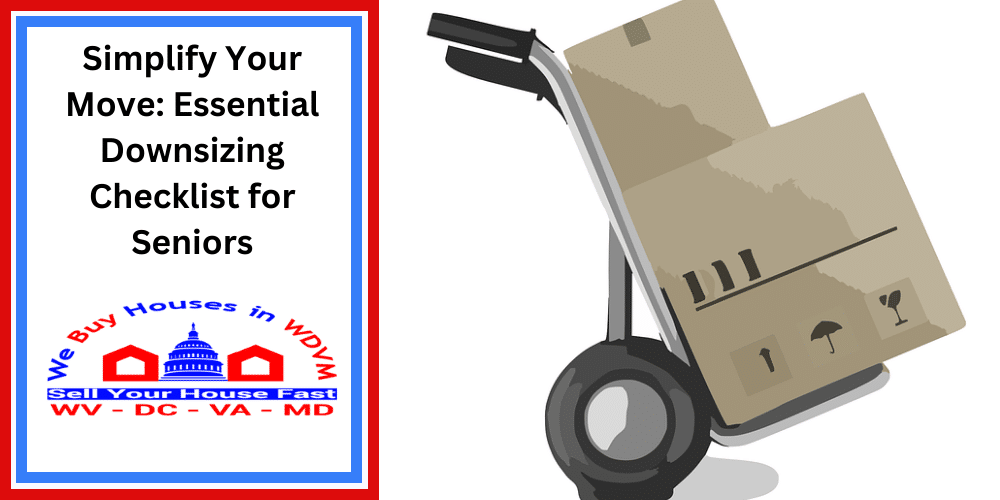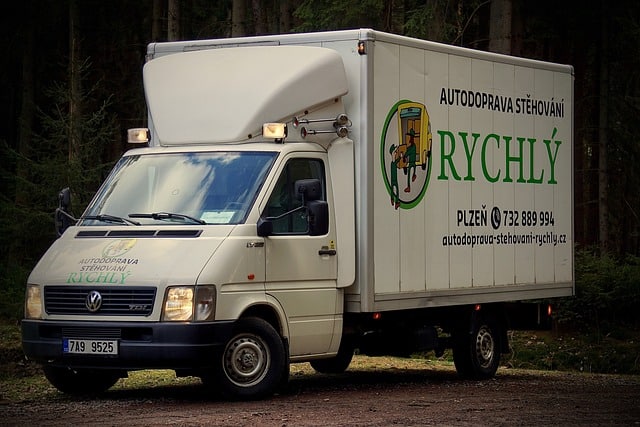Simplify Your Move: Essential Downsizing Checklist for Seniors

In this article, we will explore the downsizing checklist for seniors, offering guidance and tips to make the process easier. From sorting through belongings to finding the right housing option, we will cover all the essential steps to ensure a successful downsizing journey.
First and foremost, it is important to start early. Downsizing is not a task that can be accomplished overnight. It requires careful planning and consideration. Begin by creating a timeline and setting realistic goals for each stage of the process.
Next, decluttering becomes crucial. Seniors often accumulate a lifetime of belongings, and it can be difficult to let go. However, downsizing provides an opportunity to evaluate what is truly important and necessary. We will provide practical advice on how to sort through belongings, deciding what to keep, donate, or sell.
Finding the right housing option is another crucial step. Whether it is a smaller home, a retirement community, or assisted living, there are various options available for seniors. We will discuss the factors to consider when choosing the right housing option, such as location, amenities, and affordability.
Additionally, we will delve into the emotional aspects of downsizing. Moving to a smaller space can bring up feelings of loss and nostalgia. We will offer tips on how to cope with these emotions and make the transition smoother.
In conclusion, downsizing can be a challenging process for seniors, but with a well-planned checklist, it can be made easier. By starting early, decluttering, finding the right housing option, and addressing the emotional aspects, seniors can successfully downsize and create a comfortable and fulfilling new chapter in their lives. Stay tuned for more in-depth discussions on each of these topics in the upcoming articles.
Downsizing Checklist for Seniors
A downsizing checklist for seniors can be a challenging process, especially for seniors who have accumulated a lifetime of belongings. However, with careful planning and organization, it can also be a liberating experience. These senior downsizing tips will guide you through the necessary steps to make the transition smoother and more manageable.
1. Assess your needs: Start by evaluating your current living situation and determine what you need in your new home. Consider factors such as accessibility, maintenance, and proximity to amenities.
2. Create a timeline: Set a realistic timeline for your downsizing project. Breaking it down into smaller tasks will make the process less overwhelming.
3. Sort and declutter: Begin sorting your belongings into categories such as keep, donate, sell, and discard. Be honest with yourself about what you truly need and what holds sentimental value.
4. Measure your new space: Take measurements of your new home to ensure that your furniture and other belongings will fit. This will help you decide what to keep and what to let go of.
5. Arrange for professional help: If needed, enlist the services of a professional organizer or downsizing specialist. They can provide valuable guidance and support throughout the process.
6. Notify important parties: Inform relevant parties such as your utility companies, insurance providers, and healthcare professionals about your upcoming move. Update your address and contact information accordingly.
7. Pack strategically: Pack your belongings strategically, labeling boxes clearly and organizing them by room. This will make unpacking and settling into your new home much easier.
8. Stay connected: Downsizing can be emotionally challenging, so make an effort to stay connected with friends and family during this time. Seek support and share your feelings with loved ones.
By following this downsizing checklist for seniors, you can navigate the process with ease and minimize stress. Remember, downsizing is an opportunity to create a more simplified and fulfilling lifestyle.
Benefits of Downsizing
Senior downsizing can bring numerous benefits to seniors, making it a popular choice for many. Not only does it offer practical advantages, but it also has positive effects on emotional well-being. Let’s explore some of the key benefits of downsizing for seniors.
One of the primary advantages of downsizing is the reduction in maintenance and upkeep. Moving to a smaller home means less space to clean, fewer rooms to maintain, and lower utility bills. This can free up time and energy for seniors to focus on activities they enjoy, rather than being burdened with household chores.
Another benefit is the potential for financial savings. Downsizing often means a decrease in mortgage or rent payments, as well as lower property taxes and insurance costs. Seniors can use the extra money to supplement their retirement income, travel, or pursue hobbies and interests.

A downsizing checklist for seniors also offers an opportunity to declutter and simplify life. Over the years, seniors may have accumulated a significant amount of belongings. Moving to a smaller space forces them to evaluate what is truly essential and let go of unnecessary items. This can lead to a sense of liberation and a more organized living environment.
Moreover, downsizing can promote social connections. Moving to a retirement community or downsizing to a smaller home in a vibrant neighborhood can provide opportunities for seniors to interact with like-minded individuals and engage in social activities. This can help combat feelings of isolation and loneliness that can sometimes accompany aging.
In conclusion, downsizing offers a range of benefits for seniors. From reducing maintenance and financial burdens to decluttering and fostering social connections, it can greatly improve the quality of life for older adults. Consider the advantages of downsizing when planning for your future or helping a loved one navigate this important transition.
Choosing the Right Time to Downsize
Going through a downsizing checklist for seniors can be a daunting task, especially for seniors who have accumulated a lifetime of memories and possessions. However, there comes a time when it becomes necessary to downsize, whether it’s due to health reasons, financial constraints, or simply the desire for a more manageable living situation. But how do you know when it’s the right time to take that step? Here are some factors to consider when choosing the right time to downsize.
One important factor to consider is your health. As we age, our physical abilities may change, and certain tasks may become more challenging. If you find that maintaining your current home has become difficult or if you require assistance with daily activities, it may be a sign that it’s time to downsize to a more accessible and manageable living space.
Financial considerations are also important. Downsizing can often result in significant cost savings, both in terms of monthly expenses and maintenance costs. If you find that your current home is becoming a financial burden or if you simply want to free up some extra funds for retirement or travel, downsizing may be a wise choice.
Another factor to consider is the emotional aspect of downsizing. It can be difficult to let go of a home filled with memories, but sometimes it’s necessary for our own well-being. If your current home has become too large or empty, downsizing to a smaller, cozier space can provide a sense of comfort and security.
In conclusion, choosing the right time to downsize is a personal decision that should take into account factors such as health, finances, and emotional well-being. By carefully considering these factors, you can make a smooth transition to a more manageable and fulfilling living situation.
Finding a New Home
Moving to a new home can be an exciting yet challenging experience, especially for seniors who are downsizing. It is important to find a new home that meets their needs and provides a comfortable and safe environment. Here are some key considerations to keep in mind when searching for a new home as a senior.
Location is a crucial factor when it comes to finding a new home. Seniors often prefer to live in a neighborhood that is close to amenities such as grocery stores, medical facilities, and recreational activities. It is also important to consider the accessibility of the area, ensuring that it is easily navigable for seniors with mobility issues.
Another important consideration is the size of the new home. Downsizing often means moving into a smaller space, so it is essential to find a home that offers the right amount of living space without feeling cramped. Look for a layout that is functional and allows for easy movement and accessibility.

Safety features should also be a top priority when searching for a new home. Look for properties that have features such as grab bars in bathrooms, non-slip flooring, and well-lit pathways. Additionally, consider the security of the neighborhood and whether there are any safety measures in place.
Financial considerations are also important when downsizing. Look for a new home that fits within your budget and takes into account ongoing expenses such as utilities, maintenance, and property taxes. Consider consulting with a financial advisor to ensure that the new home aligns with your financial goals and plans for the future.
In conclusion, finding a new home when downsizing as a senior requires careful consideration of factors such as location, size, safety features, and financial considerations. By prioritizing these aspects, seniors can find a new home that meets their needs and provides a comfortable and secure living environment.
Decluttering and Sorting Belongings
Accomplishing your downsizing checklist for seniors can be a challenging task, especially for seniors who have accumulated a lifetime of belongings. However, with a well-planned checklist and a systematic approach, decluttering and sorting belongings can become a manageable process. Here are some essential steps to help seniors in their downsizing journey.
Firstly, it is crucial to start early and allow enough time for the decluttering process. Begin by creating a comprehensive inventory of all belongings and categorize them into different groups, such as essentials, sentimental items, and items for donation or sale. This step will help seniors visualize the scope of their belongings and prioritize what to keep and what to let go of.
Next, seniors should consider their future living arrangements and the available space. Downsizing often involves moving to a smaller home or a retirement community, which means limited space for belongings. It is essential to evaluate the size and layout of the new space and determine what can realistically fit. Consider the functionality and practicality of each item and let go of things that will not be needed or used in the new living environment.
When going through a downsizing checklist for seniors and decluttering, it is important to involve family members or close friends who can provide support and objective opinions. They can help seniors make difficult decisions and offer assistance in packing, organizing, and moving belongings. Additionally, consider hiring professional organizers or downsizing specialists who have experience in helping seniors through this process.
Wile sort through a downsizing checklist for seniors and your belongings, it is common to come across sentimental items that hold emotional value. While it can be challenging to let go of these items, it is important to remember that memories are not tied to physical possessions. Consider taking photographs or creating digital albums to preserve the memories associated with these sentimental items, allowing seniors to let go while still keeping the memories alive.
In conclusion, decluttering and sorting belongings is a vital step in the downsizing process for seniors. By following a well-planned checklist and involving support from loved ones, seniors can successfully navigate through this transition and create a more organized and manageable living space.
Hiring Professional Movers
Moving can be a stressful and overwhelming process, especially for seniors who are downsizing. Hiring professional movers can alleviate much of the burden and ensure a smooth transition to a new home. In this article, we will discuss the benefits of hiring professional movers and provide tips for finding the right company.
One of the main advantages of hiring professional movers is their expertise and experience in handling the logistics of a move. They are trained to efficiently pack, load, and transport your belongings, minimizing the risk of damage or loss. Professional movers also have the necessary equipment and tools to safely move heavy furniture and delicate items.
When going through a downsizing checklist for seniors and looking for a moving company, it is important to do your research and choose a reputable and reliable company. Start by asking for recommendations from friends, family, or your real estate agent. You can also search online for reviews and ratings of different moving companies in your area.

Once you have a list of potential movers, contact each company to get a quote. It is recommended to get at least three quotes to compare prices and services. During the consultation, ask about their experience with senior moves and any additional services they offer, such as packing and unpacking.
Before hiring a moving company, make sure they are licensed and insured. This will protect you in case of any accidents or damages during the move. You should also inquire about their cancellation and refund policies, as well as any hidden fees or extra charges.
In conclusion, going through a downsizing checklist for seniors and hiring professional movers can greatly simplify the downsizing process for seniors. By entrusting the logistics of the move to experts, you can focus on the emotional aspects of transitioning to a new home. Remember to do your due diligence when choosing a moving company and ensure they have the necessary credentials and experience.
Updating Important Documents
Updating important documents is an essential step when going through a downsizing checklist for seniors. As we age, it becomes increasingly important to have our affairs in order and ensure that our documents are up to date. By taking the time to update these important papers, seniors can have peace of mind and make the downsizing process smoother. Here are some key documents that should be updated:
1. Will and estate planning documents: It is crucial to review and update your will and any other estate planning documents. Ensure that your beneficiaries are still accurate and that your wishes are reflected in these documents.
2. Financial accounts and records: Take the time to review your financial accounts, such as bank accounts, retirement accounts, and investments. Update any changes in beneficiaries or account holders, and make sure your contact information is current.
3. Insurance policies: Review your insurance policies, including life insurance, health insurance, and long-term care insurance. Make any necessary updates, such as changes in coverage or beneficiaries.
4. Medical documents: Update your medical documents, including your healthcare proxy and advance directives. These documents outline your wishes regarding medical treatment and who can make decisions on your behalf.
5. Identification documents: Ensure that your identification documents, such as your driver’s license, passport, and social security card, are up to date. This will make the transition to a new living situation smoother.
By updating these important documents, seniors can have peace of mind and ensure that their affairs are in order. It is recommended to consult with an attorney or financial advisor to ensure that all necessary updates are made correctly. Taking the time to update these documents will make the downsizing process easier and less stressful.
Remember, when accomplishing a downsizing checklist for seniors this is a significant life transition, and having updated documents is essential for a smooth transition. By keeping these important papers up to date, seniors can focus on enjoying their new living situation without worrying about legal or financial issues.
Adjusting to a Smaller Living Space
A downsizing checklist for seniors can be a challenging process, especially for seniors who have lived in their homes for many years. Moving to a smaller living space requires careful planning and organization. Here are some tips to help seniors adjust to their new home:
First and foremost, it’s important to declutter before the move. Seniors should go through their belongings and decide what they truly need and what can be let go. This can be a difficult task, as many items hold sentimental value. However, downsizing is an opportunity to simplify and create a more manageable living environment.
Once the decluttering process is complete, it’s time to think about the layout of the new space. Seniors should consider their daily routine and arrange their furniture and belongings accordingly. It’s important to create a comfortable and functional space that meets their needs.

Another important aspect of adjusting to a smaller living space is maximizing storage. Seniors should invest in furniture that serves multiple purposes, such as ottomans with hidden storage or bed frames with drawers. Utilizing vertical space with shelves and wall-mounted organizers can also help optimize storage.
Adapting to a smaller living space may require some lifestyle changes. Seniors should embrace the opportunity to simplify their lives and focus on what truly matters. This may involve letting go of certain activities or hobbies that no longer fit within the new space.
Lastly, it’s important for seniors to reach out for support during this transition. Family and friends can provide emotional support and assistance with the downsizing process. Additionally, there are professional organizers and moving companies that specialize in helping seniors downsize and move.
Thank you for taking the time to read this post. We hope that the information provided has been helpful and insightful. We encourage you to leave any comments or feedback, as we value your input. Downsizing can be a transformative experience, and we wish you the best in your downsizing journey.

About Justin Mitchell
Justin, the owner and operator of “We Buy Houses In WDVM,” is a seasoned professional with a knack for providing solutions to individuals looking to sell their homes or investment properties quickly, regardless of the circumstances.
With a wealth of experience in various buying and selling scenarios, Justin excels at simplifying transactions and ensuring a stress-free process for all parties involved.
Whether you’re seeking a swift cash purchase or exploring alternative selling solutions, Justin is dedicated to finding a win-win outcome for you. As a legitimate house buyer,
Justin boasts a stellar rating on Google Reviews, a testament to his commitment to customer satisfaction.
Visit his “Beat Any Offer” page to understand why he values presenting sellers with concrete facts over mere opinions. Discover why he believes that facts matter most when it comes to creatively selling a house fast.
Table of Contents

